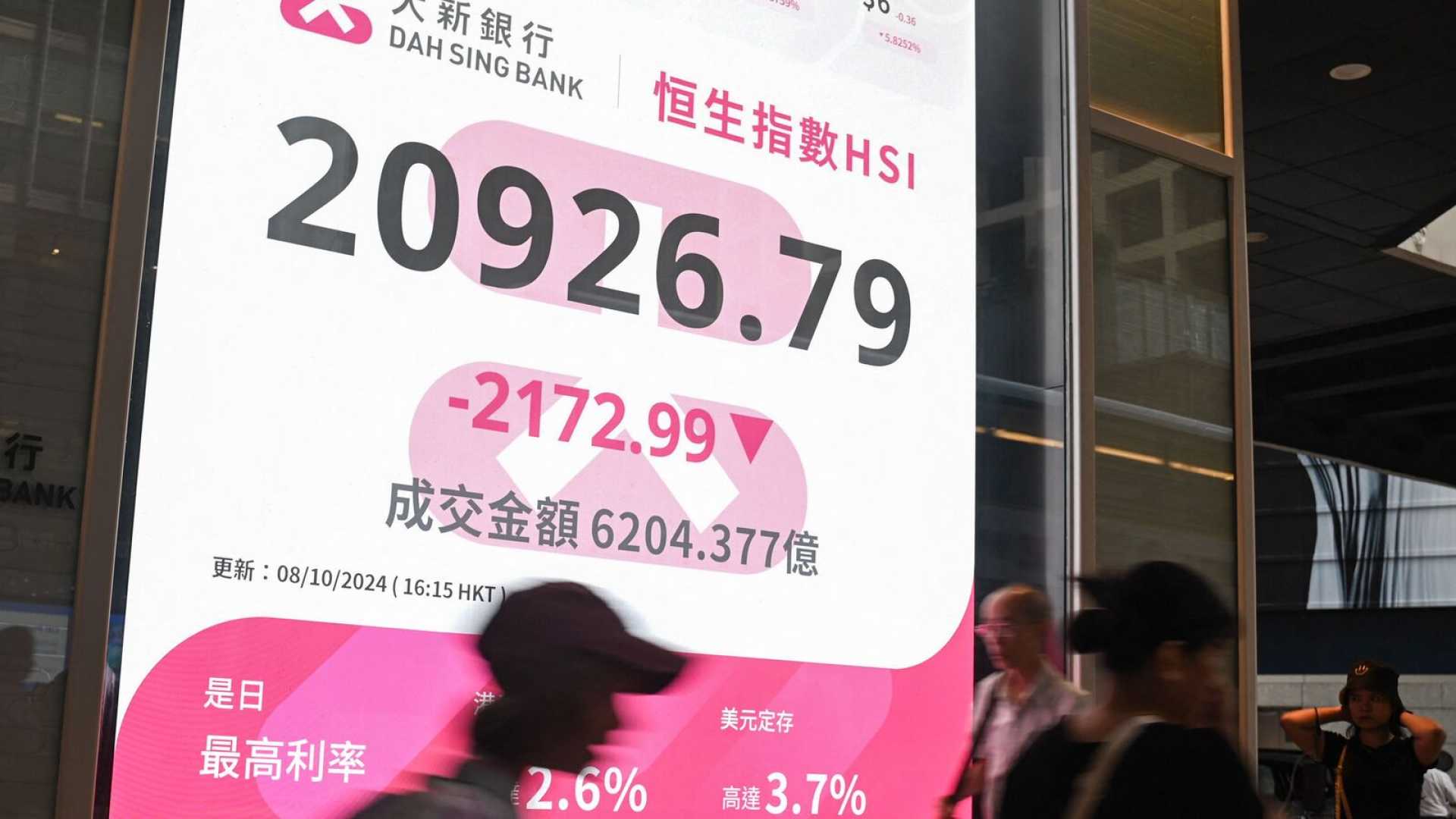News
Hang Seng Index Plummets: Investors React to China’s Economic Measures

The Hang Seng Index of Hong Kong has experienced a significant drop, declining by 9.4 percent, marking its steepest fall since the financial crisis of 2008. This dramatic downturn follows market fluctuations observed during a Chinese national holiday, erasing gains accumulated recently.
Previously, Zheng Shanjie, the Chairperson of China’s National Development and Reform Commission, had expressed optimism about meeting the country’s economic targets for 2024. Reuters reported Zheng’s assertion of being “fully confident” in utilizing 200 billion yuan ($28.36 billion) from the following year’s budget to fund investment initiatives and support local governments.
However, investor sentiment turned notably pessimistic as anticipated economic measures from China failed to offer substantial investments. This sentiment was mirrored in the U.S., where Chinese company’s shares listed on American exchanges saw declines. Firms like Alibaba Group, JD.com, and PDD Holdings recorded falls between 5.9 percent and 6.3 percent.
In addition, the National Development and Reform Commission, China’s core economic strategy department, proposed policies intended to stimulate the national economy. Yet, the absence of major new investments contributed to the Hang Seng’s substantial decline. The news also led to declines in global stocks as investors shifted focus to upcoming U.S. inflation data and corporate earnings.
Contrarily, early U.S. trades saw the benchmark S&P 500 index gain about 1.3 percent, recovering from a near one percent dip in the prior session as technology stocks rallied.
European and American stocks with considerable exposure to Chinese markets also felt the impact of China’s economic announcement. Stocks of companies like Estee Lauder and Wynn Resorts experienced decreases by 2.3 percent and 2 percent respectively. The commodity markets reacted as well, with Brent crude futures dropping by almost 2 percent.
In a broader economic context, the World Bank has forecasted a continued deceleration in China’s economic growth, projecting a decline to 4.3 percent in 2025, down from the anticipated 4.8 percent in 2024, according to Bloomberg. This slowdown is expected to create ripple effects, affecting economic growth metrics of East Asian and Pacific nations, including Indonesia, Australia, and South Korea, potentially reducing growth from 4.8 percent in 2023 to 4.4 percent in 2025.












